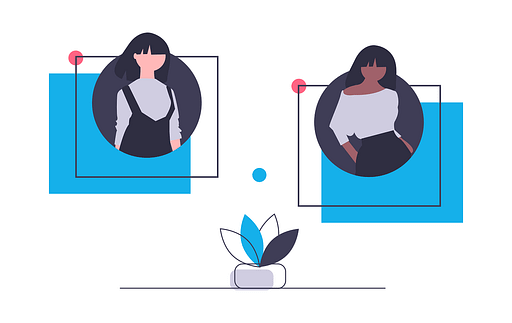“We offer the opportunity for professional development” is probably one of the most common sentences in recruitment ads. And how would you react if I told you we don’t offer that at Neoteric? 😉
Before I explain what I mean, I would like to briefly introduce you to the Netflix organizational culture described in Patty McCord’s book “Powerful” and the presentation known as Netflix Culture Deck. Why Netflix? Because our and Netflix’s organizational culture are based on the same values, and we agree in many aspects related to building teams.
Freedom & responsibility
“There are companies where people ignore trash on the floor in the office, leaving it for someone else to pick it up, and there are companies where people in the office lean down to pick up the trash they see, as they would at home. We try hard to be the latter, a company where everyone feels a sense of responsibility to do the right thing to help the company at every juncture. Picking up the trash is the metaphor for taking care of problems, small and large, and never thinking “that’s not my job.” We don’t have rules about picking up the real or metaphoric trash. We try to create a sense of ownership so that this behavior comes naturally”.
Source: Netflix career page
I believe that the culture of freedom and responsibility is something Neoteric and Netflix have in common. We both want to inspire our employees more than manage them, because this generates a sense of responsibility and helps us build teams of truly committed people who can rely on each other, exchange knowledge, do great things together, and achieve ambitious goals. And how does it look in practice?
- We don’t have any KPIs. Our work is based on OKRs (Objectives and Key Results). We set company-wide objectives, and then each team sets their own quarterly goals that will help achieve the company’s goals. The teams themselves decide on their objectives, priorities, how they want to reach these, and they discuss progress together at weekly meetings. At the end of each quarter, we have a retrospective that allows us to draw conclusions about what went well and what can be improved.
- During a quarterly summary, we openly share the company’s financial results. Transparency is very important to us so that our employees can understand the challenges and goals the company faces and how their work affects them.
- We focus on open communication, and we encourage our teams to question the status quo and be curious – for example during Q&A sessions where everyone can ask any question to our CEO.
We don’t control our employees because we believe they should organize their work themselves in a way that’s the most effective for them. That is why we give them the opportunity to work from home when they want or need it, and we have flexible working hours. This is limited only by internal arrangements between team members.

Long-term relationships
Although there are many similarities between Netflix and us, there are also issues that differ. Introducing us to Netflix’s organizational culture, Patty McCord points out that in fast-growing companies, there is usually a short period when an employee and the company are the best choices for each other. In her opinion, the competencies that an employee has at the time of hiring may be insufficient for some time, especially if the company operates dynamically or in a changing environment. This is what makes our culture different from Netflix’s – even though Neoteric is developing very fast and we have ambitious goals for the future, we focus on long-term relationships, not only on team performance.
We believe that if we employ ambitious, curious, and knowledge-hungry people and constantly support their development, we can do great things together in the long run. It is not without reason that ‘family’ appears in our values – we create a family-like atmosphere that allows us to feel safe and give us space to learn from our own mistakes. To afford this approach to team building, we have to support their growth in various ways:
Mentor support
Everyone in the company benefits from mentor support. Here is how Robert, our full-stack Developer, explained the importance of this fact: “A few weeks of working under the watchful eye of a mentor are worth months of theory! Working in interdisciplinary teams, sharing feedback, and supporting each other’s efforts help us develop our skills and grow professionally”.
At Neoteric, everyone can have their own mentor, and they can become someone’s mentor as well. This is also very valuable as it helps to look at one’s knowledge from another perspective. The role of a mentor is to show the directions in which it is worth developing from the company’s point of view and the personal ambitions of the employee. The mentor is more experienced than you are, has extensive knowledge, is up to date with the latest technologies and tools, and knows which ones will be used in our projects. They advise, answer questions, share feedback, and offer interesting books and materials – so that you can learn quickly and increase your competencies.
Sharing feedback
Sharing feedback is an important element of our daily work. We encourage our teammates (but also customers) to share their opinions, usually focusing on three questions: what went well, what went wrong, and what can be improved. Our employees have regular performance reviews (one-on-one meetings conducted on the basis of feedback surveys completed by those who work closely with them), which aim to identify strengths and areas that need development.

Flexible training policy
No one knows better than our employees what they need to develop professionally and do their job better. That is why we want them to talk openly about what support they need and in which areas, and then we decide together how we can meet these needs (for example, by organizing internal or external training, buying an online course, or sending them to a conference).
Independence
Everyone can search for the best solutions for a problem independently. We focus on effects, and the way to achieve them is individually created by our employees.
Where’s the opportunity to grow?
So… Why don’t we offer opportunities for professional development?
“Opportunity” doesn’t guarantee anything. It only provides a chance that someone may or may not benefit from the available resources. The opportunity for professional development means that it is up to an employee whether they end up increasing their skills or not.
Neoteric is not about offering opportunities for professional development. We don’t give you a choice. We are constantly developing, and we want you to grow with us. Constant development is a part of our DNA. It is something that connects all members of our team. It is what we check during recruitment interviews and what we require from each other. Why? Because we do not want to build teams for a while, we are looking for long-term relationships, and to be able to achieve this, we need those who want to grow as quickly as Neoteric does. Is that you? 😉
